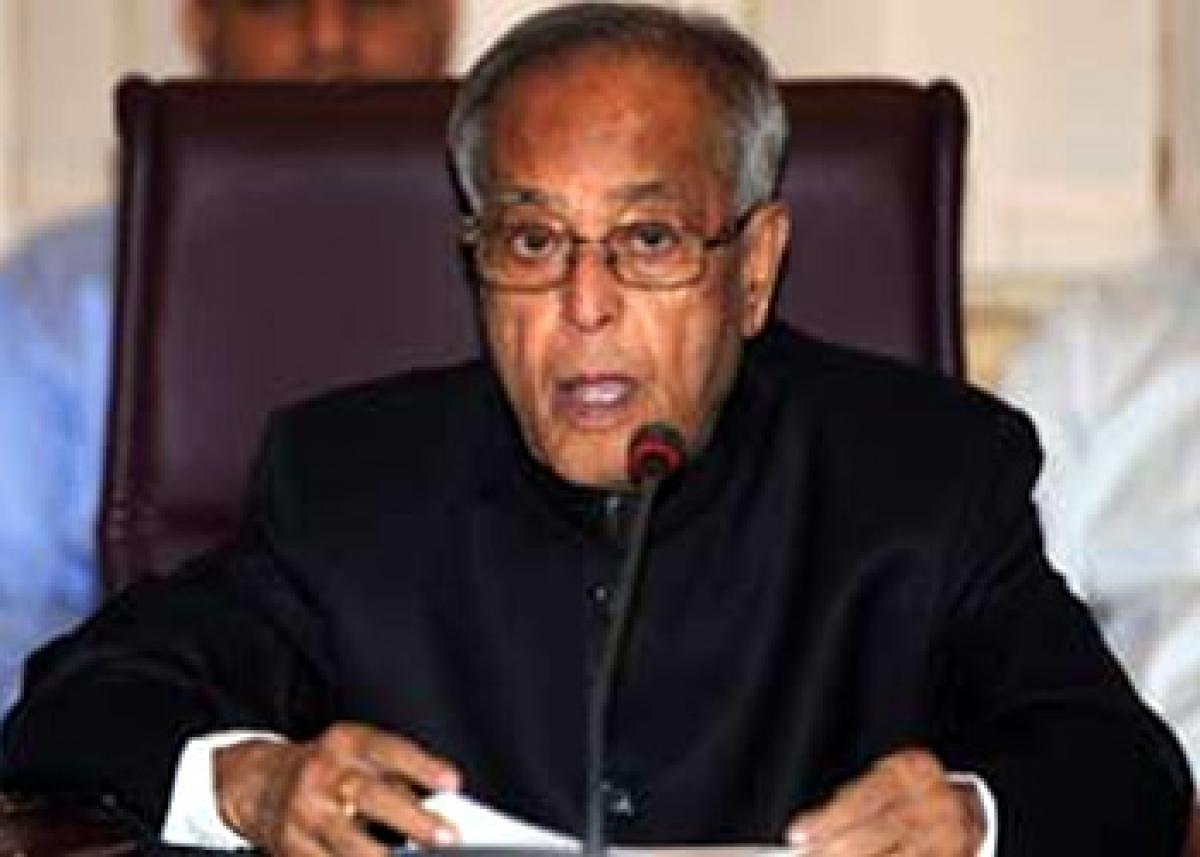Just In

Disappointed over his expulsion from the Congress in 1986, President Pranab Mukherjee has in the second volume of his autobiography \'The Turbulent Years 1980-1996\'
New Delhi: Disappointed over his expulsion from the Congress in 1986, President Pranab Mukherjee has in the second volume of his autobiography 'The Turbulent Years 1980-1996' recalled that he "spent many sleepless nights wondering why he was dropped from the Cabinet and driven out of the party".
"I can only speculate. My personal equation with Rajiv was always good, though limited," he said.
"On April 26, 1986, I was at Kamalapati Tripathy's residence when his daughter-in-law Chandra brought me the shocking news that I had been expelled from the party for six years. No one from the party leadership had bothered to inform me," writes the President in his autobiography.
Unfolding the sequence of events that led to his expulsion, the President says: "In April 1986, Pritish Nandy, Editor of the Illustrated Weekly of India, requested me for an interview and I agreed. Little did I know that he was out to make mischief. The Illustrated Weekly carried a 12-page story titled 'The Man Who Knew Too Much', which created a furore in political circles. The report implied that I knew something which would harm the party, the government and Rajiv. It claimed that I was waiting for an opportunity to use such information and that Rajiv's power base was weakening."
"There was nothing objectionable in any of the responses I gave to Pritish Nandy's questions, but the magazine talked about my popularity ratings improving in comparison to Rajiv's, my growing power base, and so on."
Clarifying his position, the President writes, "None of these observations were based on what I had said on record. The questions in the interview had been deliberately framed to compare Mrs. Gandhi's rule to Rajiv's, and I could not but give honest responses.
"Some of my anguish at being dropped from the CWC and CPB and being treated as an outcast also came through, he says, adding, "However, I made it absolutely clear that there was no move to split the party, that there was no question of destroying a national institution like the Congress and that the party would survive all dissent."
President Mukherjee writes, "Perhaps I should have sensed Rajiv's growing unhappiness and the hostility of those around him and taken pre-emptive action. However, I remained engrossed in my work, as is my usual way. Many of actions, all without malice or ill-intent, were used by my detractors to project me as someone unwilling to accept Rajiv's leadership. Petty things were blown up into huge issues."
Recalling another incident that may have angered Rajiv Gandhi, President Mukherjee says, "During the meeting of the CPB to select Congress candidates for the general election of 1984. The nomination of the incumbent Lok Sabha members Kamal Nath from Chhindwara in Madhya Pradesh and Professor Nirmala Kumari Shaktawat from Chittorgarh, Rajasthan, was opposed by some people close to Rajiv, including Arun Nehru. I strongly protested and insisted on their nomination. The vehemence of my protest perhaps displeased Rajiv, who reputedly said, 'Reserve it for the consideration of the president'- meaning himself."
"Clearly, Rajiv did not like my proximity to Kamalapati Tripathi. Media reports speculating about dissident activities may also have angered him," he added.
However, in answer to the question of why he dropped me from the Cabinet and expelled me from the party, the President says: "All I can say is that he made mistakes and so did I. He let others influence him and listen to their calumnies against me. I let my frustration overtake my patience."

© 2024 Hyderabad Media House Limited/The Hans India. All rights reserved. Powered by hocalwire.com







